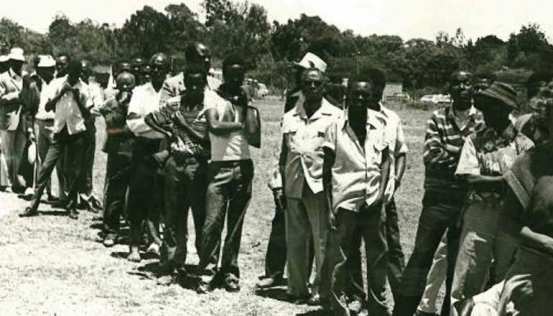
‘Political privacy’ during an election is achieved via the secret ballot in which a voter’s choice of a candidate remains confidential.
The secret ballot thus ensures voters are not intimidated, bullied or bought. A voting booth is one hallmark of ‘political privacy.’
The colonial government enacted the Secret Ballot Act in 1872 - when Kenya was just a geographical expression and not a state.
But in February 1988, as a means of ensuring ‘transparent elections’ during the primaries, the then ruling party Kanu introduced the mlolongo (queue) voting system for party delegates. It was simple. But absurd.
A political hopeful or his/her agents stood at the front of a queue holding the candidate’s photo. Party members who supported a particular candidate then lined up for ‘loud counting.’
The candidate who garnered 70 per cent of the vote was automatically declared the MP! Kenya had 20 million people, but only 4.5 million were registered Kanu members.
Mlolongo, and the dismal turnout, was a comedy of errors. Overzealous Kanu hawks called mlolongo “the most democratic election system in the world!”
Even Prof Sam Ongeri said: “As a medical doctor, (I can confirm that) this is the best voting system because it saves the patient (politician) from a (possible) heart attack...the secret one has shock!”
But alas! candidates with the shortest queues were declared winners by DCs who acted as returning officers!
Bedan Mbugua’s Beyond magazine termed mlolongo a ‘mockery of justice.’ For that, he was thrown to the coolers and his Christian magazine banned.
 The Standard Group Plc is a multi-media organization with investments in media
platforms spanning newspaper print
operations, television, radio broadcasting, digital and online services. The
Standard Group is recognized as a
leading multi-media house in Kenya with a key influence in matters of national and
international interest.
The Standard Group Plc is a multi-media organization with investments in media
platforms spanning newspaper print
operations, television, radio broadcasting, digital and online services. The
Standard Group is recognized as a
leading multi-media house in Kenya with a key influence in matters of national and
international interest.
